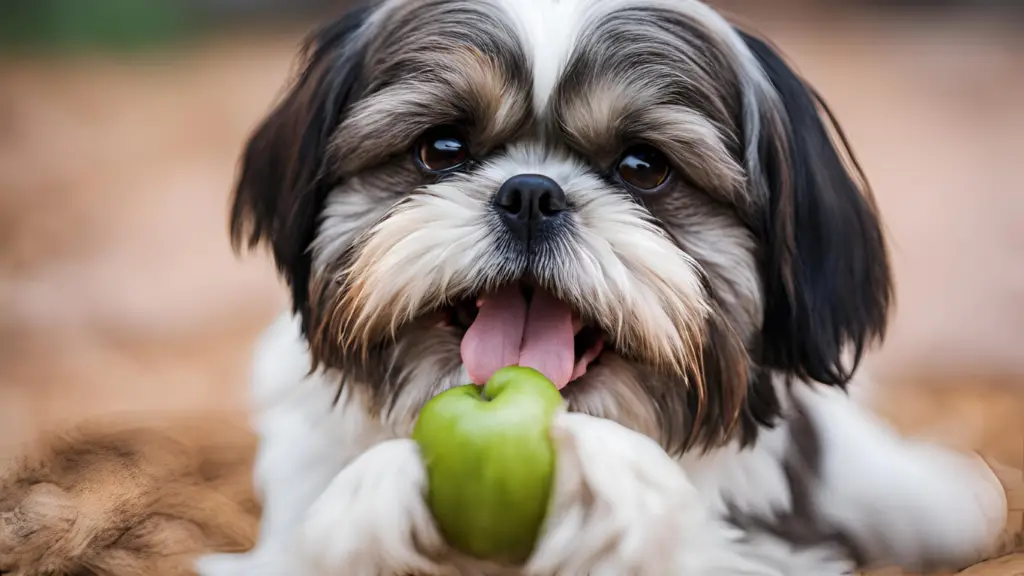
Feeding your Shih Tzu a balanced diet is essential for their overall health and well-being. This small breed, known for its charming personality and beautiful coat, requires specific nutrients to stay healthy and active. In this blog post, we’ll discuss the best ways to ensure your Shih Tzu is getting the nutrition they need, including choosing the right food, understanding portion sizes, and incorporating supplements.
Choosing the Right Food
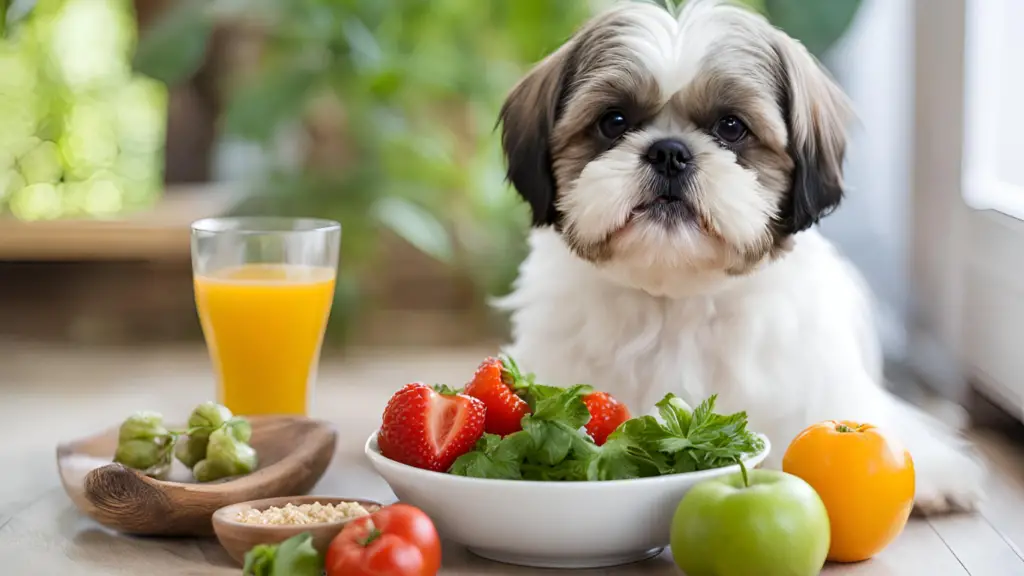
Selecting the right food for your Shih Tzu is the first step towards ensuring they receive a balanced diet. Look for high-quality dog food that lists meat as the first ingredient. Avoid products with excessive fillers, artificial colors, and preservatives. These ingredients can lead to health problems and do not provide the necessary nutrients your Shih Tzu needs.
Protein is crucial for your Shih Tzu’s diet. Aim for dog food that contains around 25-30% protein. Fat is also important, but it should be around 10-15% to maintain a healthy coat and energy levels. Carbohydrates, while necessary, should come from wholesome sources like sweet potatoes and brown rice, not from corn or wheat.
Understanding Portion Sizes

Understanding the correct portion sizes is key to preventing obesity, a common issue in Shih Tzus. Overfeeding can lead to weight gain, which can cause numerous health problems such as joint issues, diabetes, and heart disease. Follow the feeding guidelines on the dog food package, but adjust based on your Shih Tzu’s activity level, age, and metabolism.
Measure your dog’s food accurately. It’s easy to overestimate portions, especially with small breeds. Using a standard measuring cup can help maintain consistency. Remember that treats should make up no more than 10% of your Shih Tzu’s daily calorie intake.
Feeding Schedule
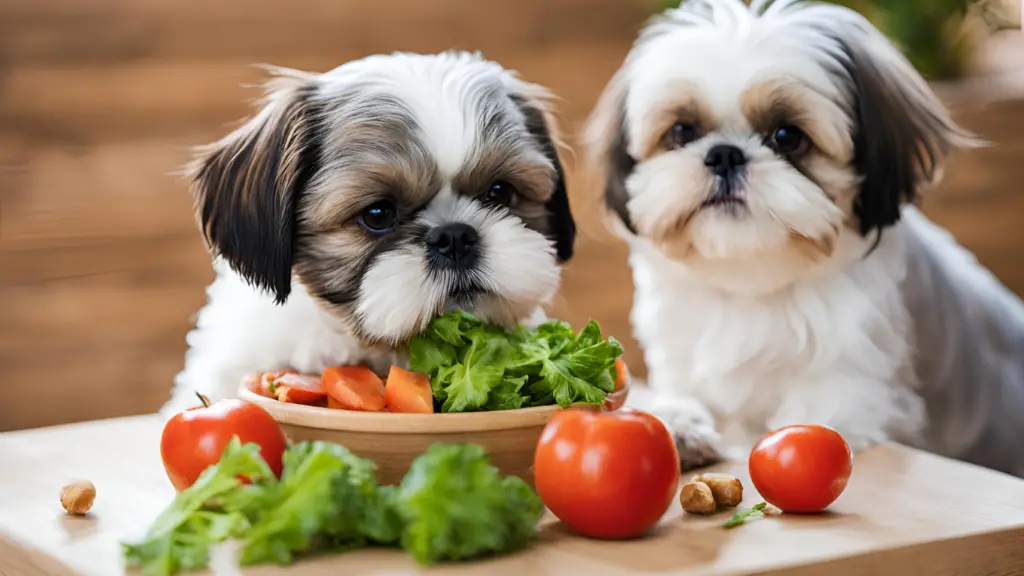
Maintaining a consistent feeding schedule helps regulate your Shih Tzu’s digestion and prevents overeating. Adult Shih Tzus typically do well with two meals per day, while puppies may require three to four smaller meals to support their growth and energy needs.
Stick to regular meal times to create a routine. This not only helps with digestion but also with training, as your Shih Tzu will learn to anticipate meal times and eat more eagerly. Avoid free-feeding, where food is left out all day, as this can lead to overeating and weight gain.
Incorporating Fresh Foods

Incorporating fresh, whole foods into your Shih Tzu’s diet can provide additional nutrients and variety. Fresh vegetables like carrots, peas, and green beans are excellent sources of vitamins and fiber. Fruits such as apples (without seeds) and blueberries can be healthy treats, but should be given in moderation due to their sugar content.
Lean meats like chicken, turkey, and fish can be added to your dog’s meals to boost protein intake. Cook these meats thoroughly and avoid seasoning, as certain spices can be harmful to dogs. Always introduce new foods gradually to avoid upsetting your Shih Tzu’s digestive system.
Avoiding Harmful Foods
It’s essential to know which foods to avoid feeding your Shih Tzu. Some foods that are safe for humans can be toxic to dogs. Chocolate, grapes, raisins, onions, and garlic are all dangerous and can cause serious health issues. Xylitol, a sugar substitute found in many sugar-free products, is extremely toxic to dogs and can cause liver failure.
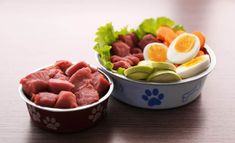
Be cautious with table scraps and leftovers. While it might be tempting to share your food with your Shih Tzu, many human foods contain ingredients that can harm them. Stick to dog-safe foods and treats to ensure your pet’s safety.
Considering Supplements
Supplements can be a valuable addition to your Shih Tzu’s diet, especially if they have specific health concerns or nutritional gaps. Omega-3 fatty acids are excellent for maintaining a healthy coat and skin. They can also reduce inflammation and support joint health. Probiotics can aid in digestion and boost the immune system.
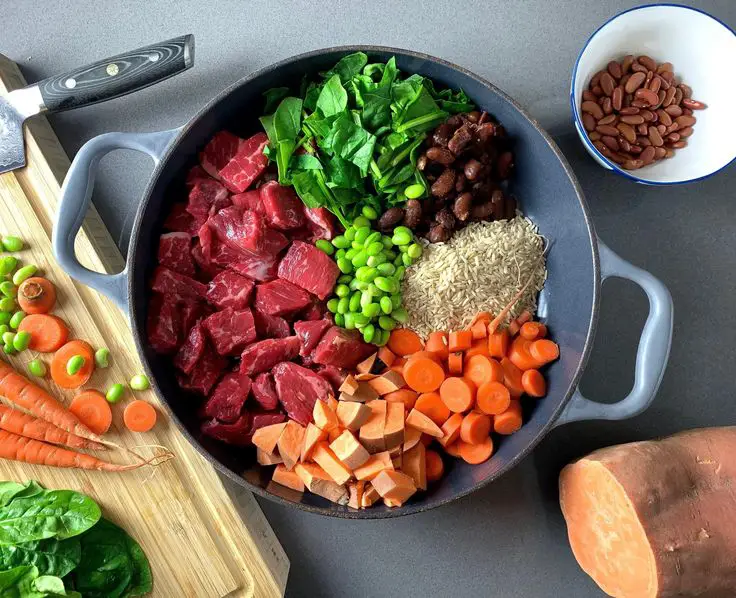
Consult with your veterinarian before adding any supplements to your Shih Tzu’s diet. They can recommend the appropriate supplements and dosages based on your dog’s specific needs. Avoid over-supplementing, as excessive vitamins and minerals can cause health problems.
Monitoring Weight and Health
Regularly monitoring your Shih Tzu’s weight and overall health is crucial for maintaining a balanced diet. Keep an eye on their body condition, looking for signs of weight gain or loss. A healthy Shih Tzu should have a visible waistline and you should be able to feel their ribs without pressing hard.
Schedule regular veterinary check-ups to ensure your Shih Tzu is in good health and to address any dietary concerns. Your vet can provide guidance on any necessary adjustments to their diet based on weight, activity level, and overall health.
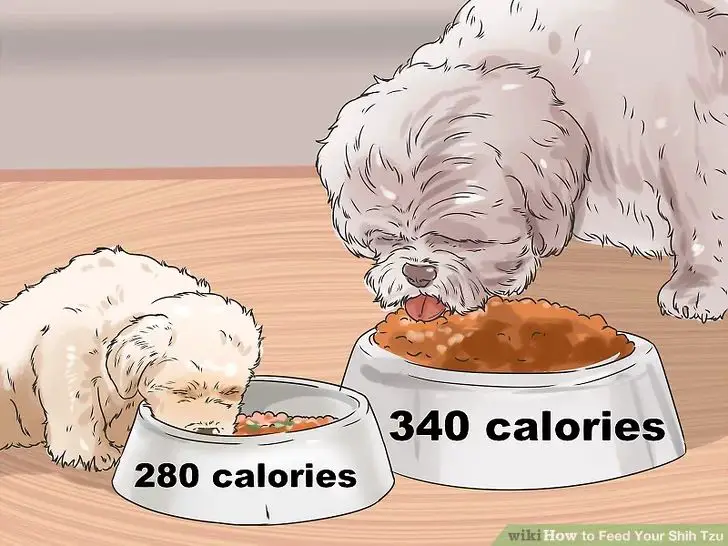
Hydration is Key
Ensuring your Shih Tzu stays hydrated is just as important as their food intake. Always provide fresh, clean water for your dog. Dehydration can lead to serious health issues, including urinary tract problems and kidney disease.
Monitor your Shih Tzu’s water intake, especially during hot weather or after exercise. If you notice a decrease in their water consumption, it could be a sign of an underlying health issue, and you should consult your veterinarian.
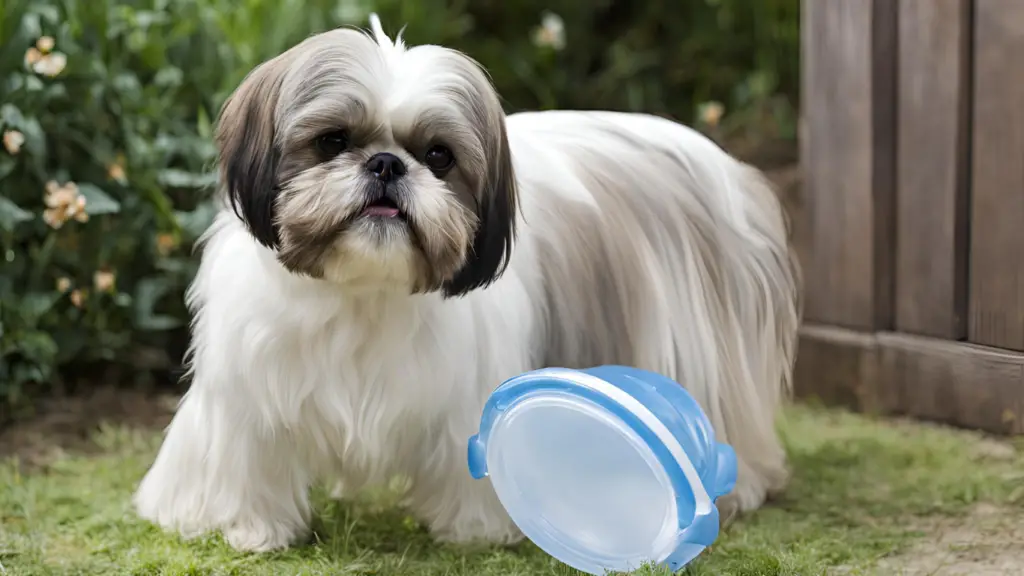
Homemade vs. Commercial Diets
Many Shih Tzu owners consider homemade diets to have more control over ingredients. Homemade diets can be healthy if properly balanced, but they require careful planning and knowledge of canine nutrition. Consult with a veterinary nutritionist to ensure that all nutritional needs are met.
Commercial dog foods are convenient and nutritionally balanced, but it’s important to choose high-quality brands. Look for products that meet AAFCO (Association of American Feed Control Officials) standards and have undergone feeding trials to ensure their nutritional adequacy.
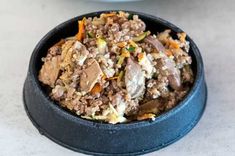
Transitioning Foods
If you decide to change your Shih Tzu’s diet, do so gradually to avoid gastrointestinal upset. Start by mixing a small amount of the new food with the old food, gradually increasing the new food’s proportion over a week or two. This slow transition helps your dog’s digestive system adjust and reduces the risk of diarrhea or vomiting.
Watch for any adverse reactions during the transition period. If your Shih Tzu shows signs of an upset stomach, slow down the transition process and consult your veterinarian if necessary.
Special Dietary Needs
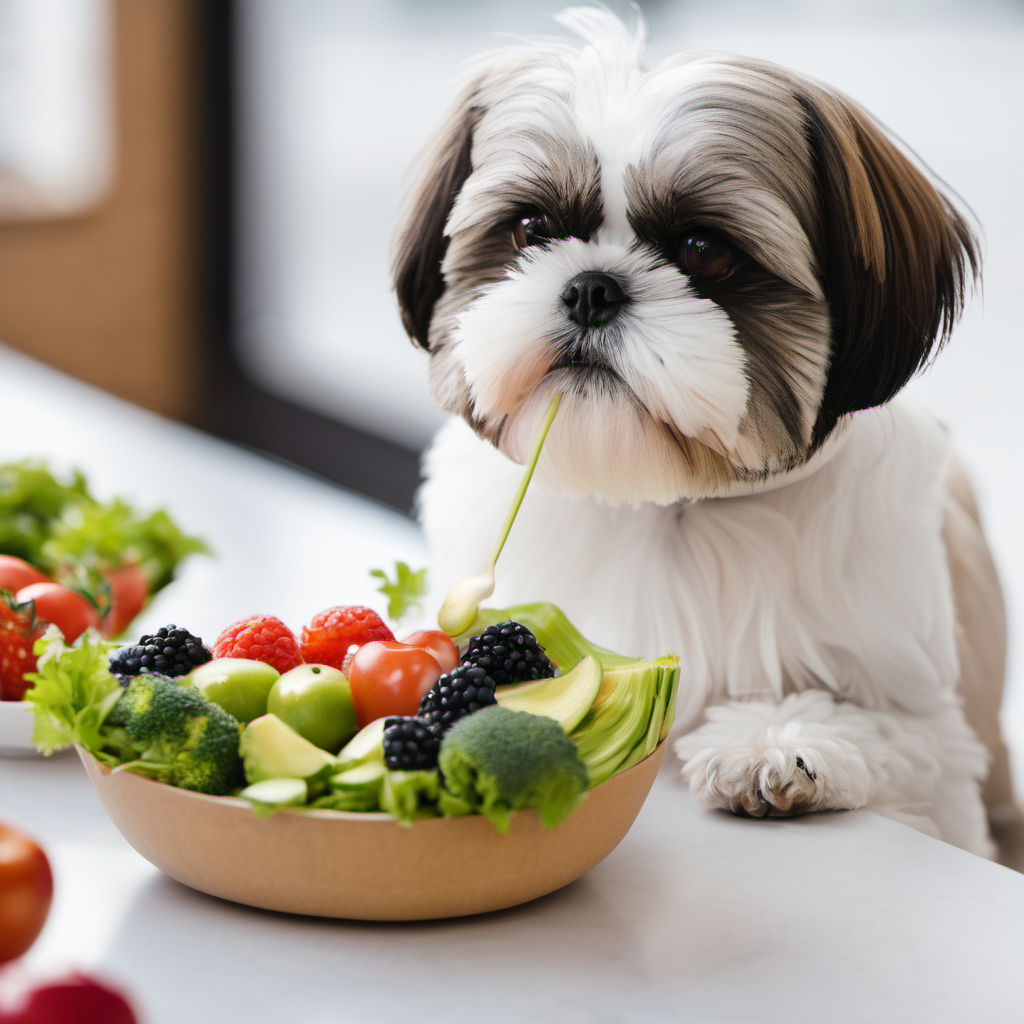
Some Shih Tzus may have special dietary needs due to allergies, sensitivities, or health conditions. Common allergies in dogs include chicken, beef, dairy, and grains. If you suspect your Shih Tzu has a food allergy, consult your veterinarian for advice on elimination diets and hypoallergenic food options.
For Shih Tzus with health conditions like diabetes or kidney disease, specific dietary adjustments are necessary. Your veterinarian can provide a tailored diet plan that meets your dog’s unique needs and supports their overall health.
Training with Treats
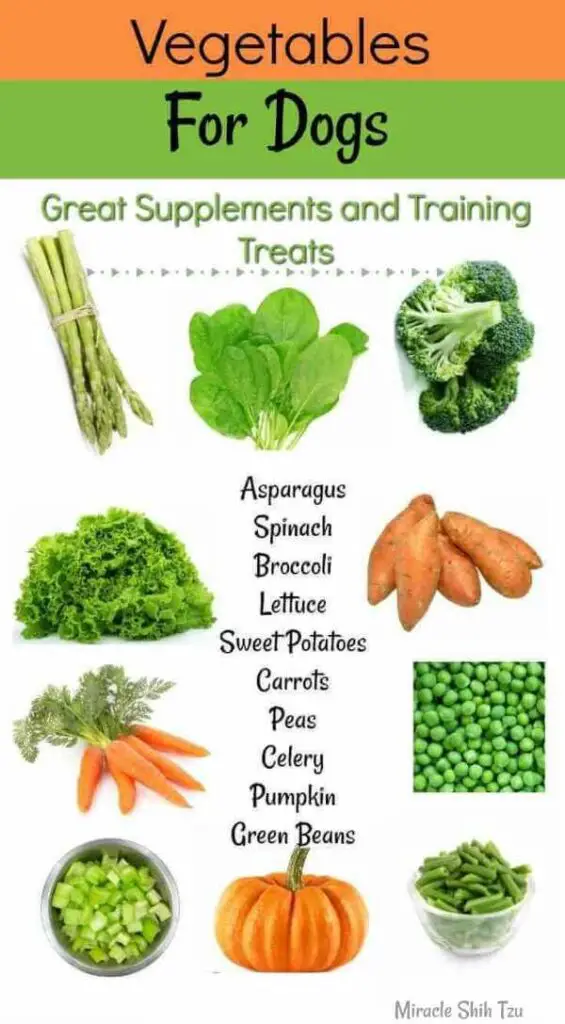
Using treats for training is effective, but it’s important to choose healthy, low-calorie options. Treats should not make up more than 10% of your Shih Tzu’s daily caloric intake. Opt for small, bite-sized treats or use pieces of their regular kibble during training sessions.
Be mindful of the calorie content of the treats you’re using. High-calorie treats can contribute to weight gain, especially in small breeds like Shih Tzus. Incorporate training into mealtime by using part of their daily food allowance as training rewards.
Conclusion
Feeding your Shih Tzu a balanced diet is essential for their health and well-being. By choosing high-quality food, understanding portion sizes, and incorporating fresh foods and supplements, you can ensure your Shih Tzu receives the nutrients they need. Avoid harmful foods, maintain a consistent feeding schedule, and monitor their weight and health regularly. Whether you choose commercial or homemade diets, make sure they meet your Shih Tzu’s nutritional needs. With proper care and attention, your Shih Tzu can enjoy a long, healthy, and happy life.


